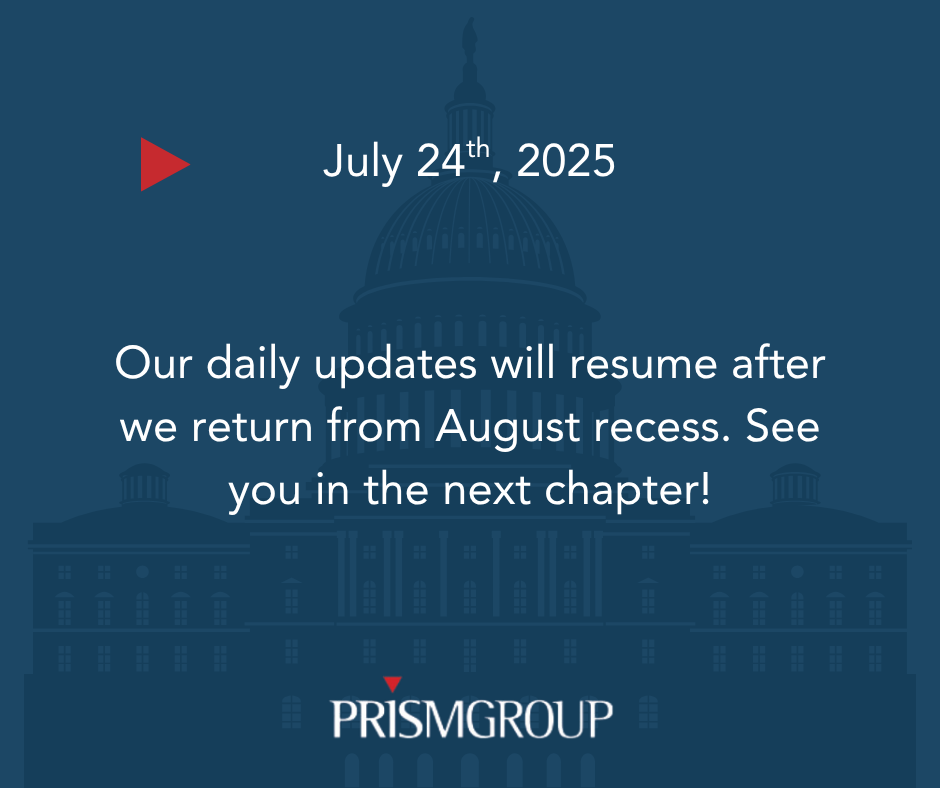What recess? Updates in small biz policy from a not-so-quiet August
- Alexis D'Amato

- Aug 30, 2023
- 3 min read
Updated: Aug 31, 2023
Ah, August recess. The time in which Congress heads back to their districts and hometowns for a month’s worth of local business, field hearings, and time with constituents. In Washington, “August recess” is code for “take your vacation now, because you won’t miss much.” However, that sentiment does not always ring true in busy industries, least of all those that touch small business issues.
Although members are “out” for a six week stretch, agencies, committee staff, and the administration remain hard at work cranking out program updates, policy changes, and more. If you’re involved in the small business or entrepreneurship advocacy communities, you too might be asking yourself why things aren’t so quiet after all. Allow me to explain.
At the agencies...
The Small Business Administration (SBA) reacts in real-time to legal challenges levied against programs that target minority communities following the SCOTUS ruling on affirmative action. In July, the Eastern District Court of Tennessee declared that the Small Business Administration’s 8(a) business development program could no longer deem a business as disadvantaged solely because the business owner belongs to a racial minority group (Asian, Hispanic, and Black-owned businesses were impacted). In early August, SBA announced that it has halted all new applications to the 8(a) program, then released guidance stating that the agency will now require all current 8(a) participants who were certified under the presumption of social disadvantage to re-certify using a social disadvantage narrative. Separately (and not to be confused as a requirement forced by the ruling), SBA later extended the moratorium on the Bona Fide Place of Business requirement (through September 2024) enabling businesses to compete for contracts in states outside of where their business is located.
Throughout August, various agencies have since began to reaffirm their commitments to upholding equitable contracting practices as directed by the Office of Management and Budget memorandum 2203 to advance equity in federal contracting. For example, the Department of Education recently hosted a webinar in late August outlining its equity in contracting plans for small and disadvantaged business enterprises (SDBEs).
In late August, the Department of Commerce CHIPS for America office (the office charged with implementing the CHIPS funding from the CHIPS and Science Act) released guidance on the agency’s intent to create inclusive opportunities for businesses through CHIPS implementation. The guide contains overviews of supplier diversity plans, outreach with SDBs, and industry-specific resources.
Also in late August, the Minority Business Development Agency (MBDA) put out a call to action to solicit nominations for its first-ever Minority Business Enterprises Advisory Council to appoint over 9 individuals from the private sector to advise the Under Secretary for Minority Business Development. Applications are due September 18 (again, what recess?).
In Congress (yep, even Congress was busy this August), the Senate Committee on Small Business and Entrepreneurship held FOUR hearings across the nation on small business regulations, Hawaii farm businesses, small business resiliency, and cybersecurity challenges faced by small businesses. Last but not least, numerous bills were introduced addressing various corners of the small business economy including...
Rep. Nydia M. Velazquez’s (D-NY-7) bill to amend the Small Business Act to extend the period during which credit for contracting with Puerto Rico businesses and covered territory businesses are double counted, and for other purposes.
Rep. Jennifer A. Kiggans’s (R -VA-2) bill to amend the Small Business Act to increase certain goal for participation in Federal contracts by small business concerns owned and controlled by service-disabled veterans, to exclude such self-certified concerns from Government-wide and Federal agency goals, and for other purposes.
Rep. John Joyce’s (R -PA-13) bill to require the Secretary of Commerce to conduct a study on the gig economy and the impact the gig economy has on the United States overall economy, including the impact that state laws have had on the gig economy.
Rep. Zachary Nunns’s (R-IA-3) bill to amend title 31, United States Code, to provide small businesses with additional time to file beneficial ownership information, and for other purposes.
As you can see, the alleged quiet August recess filled with gobs of downtime for lawmakers and government affairs professionals was just an illusion all along. In reality, this year, Congress and the Biden-Harris administration remained heads down on advancing their respective legislative agendas to hit the ground running upon Congress’ return. All this to say, we hope that you have something relaxing planned for the Labor Day holiday, because if this recess was any indication for what’s to come for the remaining 2023, we advise you soak in the last few days of summer, while you still can.




Comments